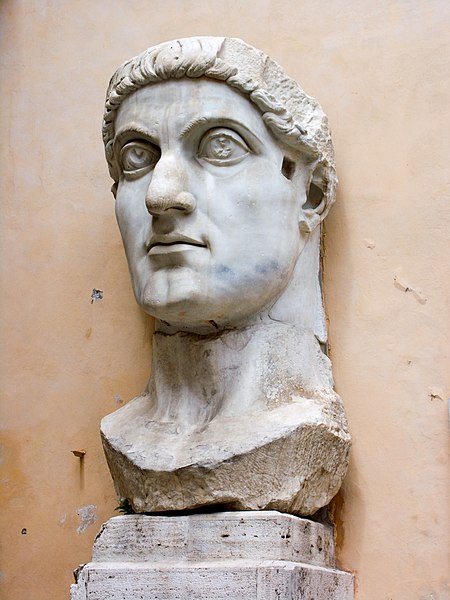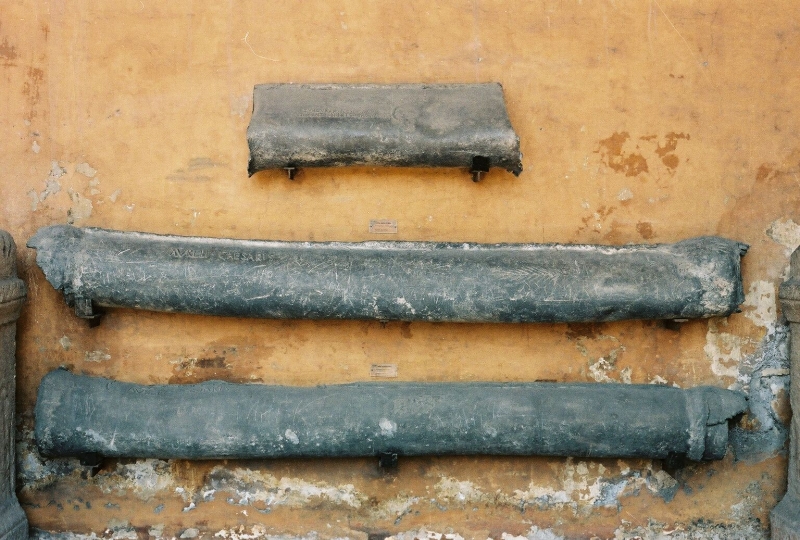Throughout the year I have learned many important things; in which have changed how I view many topics in the world. However, the most important thing I learned this year is the relationship between Christianity and the Roman Empire.
One of the major relationships between Christianity and the Roman empire is how much they innfluenced each other. Rome started out with a polytheistic religion. The Romans believed that with the right ritutual they would have a right relationship with the gods. Even tough this was the state religion, they were still very tolerant of other religions in the empire.
Christianity was very different from the Roman state religion. The Christian relgion started with a man called Jesus of Nazareth. In about 26 A.D. he bagan to preach, telling prople that he was the son of God. He told the Romans that what was important was not strict law, but rather the inner change of the soul. Jesus taught that there was one God and that his commandment was: to love God and one another. Around 29 A.D. he was cruxified by the Roman procurator, Pontius.

Christianity was greatly influenced in Rome by the Apostles Paul and Peter. Paul of Tarus reached out to non-Jews. The Bible includes an epistle written by the Apostle Paul to the Christians in Rome. The book of Acts records that Paul, though Jewish, was a Roman citizen by birth. When the Jews accused Paul of bringing Gentiles into their synagogue, Paul made an appeal for Caesar to hear his case. He is thought to be beheaded under the rule of Nero. The Apostle Peter is known to have established his headquarters in the city, following his thirty-year ministry in the East. The Apostle Peter was martyred in Rome.
One of the major relationships between Christianity and the Roman empire is how much they innfluenced each other. Rome started out with a polytheistic religion. The Romans believed that with the right ritutual they would have a right relationship with the gods. Even tough this was the state religion, they were still very tolerant of other religions in the empire.
Christianity was very different from the Roman state religion. The Christian relgion started with a man called Jesus of Nazareth. In about 26 A.D. he bagan to preach, telling prople that he was the son of God. He told the Romans that what was important was not strict law, but rather the inner change of the soul. Jesus taught that there was one God and that his commandment was: to love God and one another. Around 29 A.D. he was cruxified by the Roman procurator, Pontius.

Christianity was greatly influenced in Rome by the Apostles Paul and Peter. Paul of Tarus reached out to non-Jews. The Bible includes an epistle written by the Apostle Paul to the Christians in Rome. The book of Acts records that Paul, though Jewish, was a Roman citizen by birth. When the Jews accused Paul of bringing Gentiles into their synagogue, Paul made an appeal for Caesar to hear his case. He is thought to be beheaded under the rule of Nero. The Apostle Peter is known to have established his headquarters in the city, following his thirty-year ministry in the East. The Apostle Peter was martyred in Rome.
 Paul Preaching in Rome
Paul Preaching in RomeThe Roman tolerence towards Christians began to change. They tolerated only religions that did not threatened public order and public morals. Many Romans began to veiew Christians as a rebelious people, because they would not worship the empire's gods or emperor. As an effect of this, the Christians were looked upon as treasonist, and were killed for it. If they were caught, they faced death for failing to worship the emperor. It was not uncommon for emperors to turn the people against the Christians when Rome was faced with difficulties in time. Such as in AD 64, part of Rome was burned down. The Emperor Nero blamed the Christians and the people turned on them. Arrests and executions followed. As a result of these dangers, Christains often had to meet in private.
However, as new emperors came to rule, these extremes went away. Christianity survived all of these difficulties; and is still a thriving religion today. The numbers of Christians in the city grew, particularly as the power and integrity of the empire decayed and the people of Rome lost faith in the old gods. A major turning point for the Christian faith was in 310 A.D. In this year, General Constantine was about to wage battle against general Maxentius at the Milvian Bridge. He was miracusly inspired to take the cross as his standard. Sure enough the following day he won the battle and became sole emperor. He pronounced the religion of state to be Christianity and donated various properties to the Christians so that they might carry on their faith. After this point in time, Christianity grew to new lengths. In 378 to 395 a new emperor, Theosoius the Great, made Christinaity the offical religion of Rome. Romans went from tolerating Christianity, to persecuting all Christians that pushed against the state, to being the state religion. Christiantiy had triumphed.
 General Constantine
General ConstantineThroughout all of this, it showed me that God works in amazing ways and that the true religion will always overcome and surpress all of the other false lies out in the world. It also showed me that I should be very thankful that I life in a country where I can practice my faith. It also makes me question what I would do if I was put in the situation of the Romans that were killed for their faith.
This is the most important thing I learned this year.

